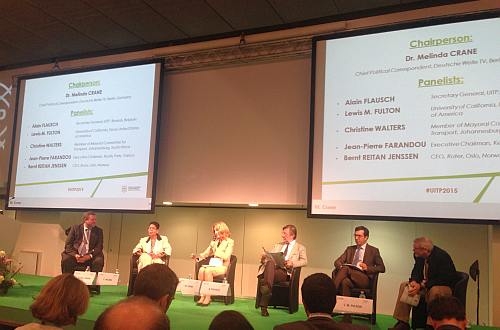The document presented by UITP secretary general Mr Alain Flausch during a plenary session at the 2015 UITP World Congress and Exhibition in Milan on June 9 shows that efforts to boost supply of public transport, control private car use, and increase urban density has led to a general increase in public transport's modal share.
The report details figures obtained from 2012 and shows growth of more than 10% in Oslo, London and Paris, while cities such as Prague, Berlin, and Rome have reversed the previous trend of a decreasing share for public transport.
However, the situation in developing countries is less promising due to increasing motorisation and minimal measures to manage private car use.
Despite a 90% increase in public transport supply in developed countries from 1995 to 2012, and 30% in less-developed countries, Flausch stressed that a combination of solutions is required and that supply alone is not sufficient to deliver an increase in modal share. As a result, he told the conference that globally there is still much to be done to fulfil the goals of the UITP strategy.
"We are going to continue to push for this because I am scared for the next generation," Flausch told the conference. "Without these changes big cities will become unlivable. Life in places like Mexico City and São Paulo is going to be difficult, and many other places are not going to be nice places to be. Something has to be done. But whatever the future, mass transit is the solution for normal cities that do not have significant suburban sprawl. Heavy metros and trains that can transport large numbers of people will make the difference here."

